As a birthday treat for my lovely mum we surprised her with a Black Cab tour of the Belfast murals followed by afternoon tea in the Merchant Hotel in a throwback to her college days spent in the city. We’re big fans of Northern Ireland in The Whole World is a Playground house and were excited to see Belfast, the capital city of Northern Ireland, from a new perspective.
The Black Cab Tour
We opted for a tour of the Belfast murals which tells the story of the Troubles in Northern Ireland. The Troubles were a three decade conflict at the root of which lay the Unionists and predominantly Protestant desire to remain part of the UK and the Republicans and Catholic minority wish to become part of the Republic of Ireland. The Troubles, which resulted in over 3,600 deaths, began in Northern Ireland in the 1960s and were considered to end with the signing of the Good Friday agreement in 1998.
The three of us were intrigued by the opportunity to learn more about the history of Belfast. I grew up in Northern Ireland during the 1980s as the Troubles continued, my mum went to college in Belfast at their very peak and the husband is a wary observer having only seen news stories from afar. We were picked up in a very cool black cab by a Belfast driver and we were ready to check out the city.
This black cab rocks!
The Shankill Road
Our first stop was the Shankill Road, a focal point of the Troubles and a centre for the Unionist community. It was fascinating to walk around the working class housing estates filled with thought provoking murals depicting snipers, riots and tributes to some prominent names who died at the height of the Troubles.
Welcome to the Shankill Road:
A history of the Shankill Road: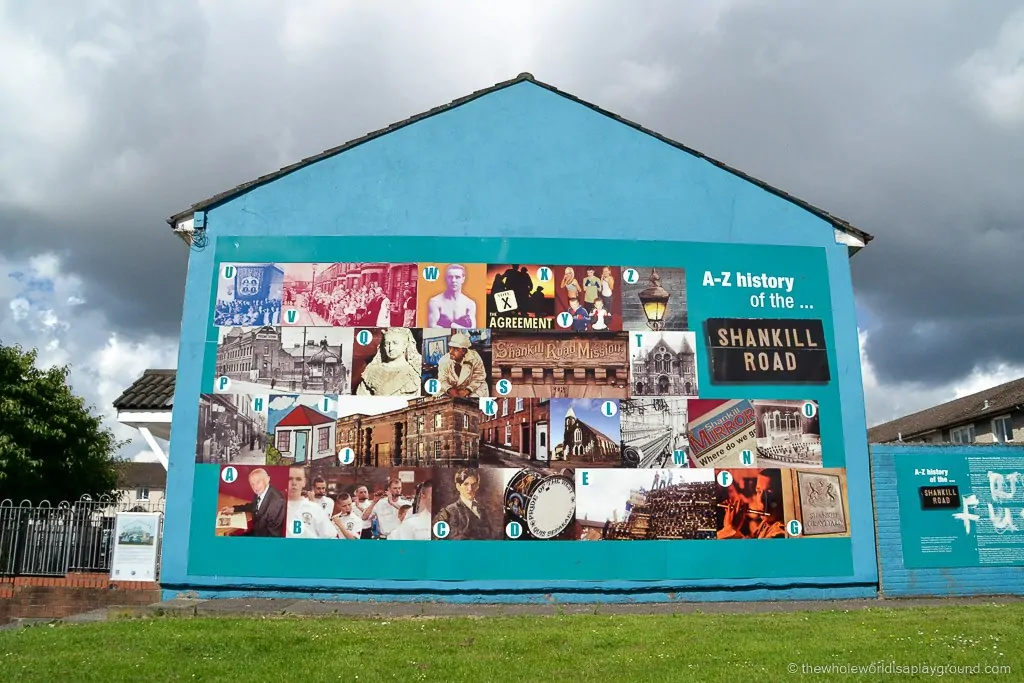
A mural representing the Red Hand of Ulster:
The Maze prison closed its doors in 2000 with prisoners released under the Good Friday agreement:
A reference to the 1969 Northern Ireland riots:
The legend of Cúchulainn, an Irish mythological hero :
The houses and murals of the Shankill Road:
The Peace Wall, Belfast
As we made our way to the opposite side of the divide to the predominantly Republican and Catholic Falls Road, we stopped at Cupar Way, a towering steel ‘peace’ wall which separates the Shankill Road and the Falls Road. The walls were built during the 1969 Northern Ireland riots and separate the Catholic and Protestant communities to prevent tensions simmering over and clashes occurring between opposing sides of the conflict.
There are around 21 miles of peace walls in Northern Ireland and, although the government wants to remove every wall by 2023, the situation is still complex. Having visited the Separation Wall in Bethlehem the Belfast walls were another forceful reminder of communities living under the shadow of separation.
A peace line:
The towering wall:
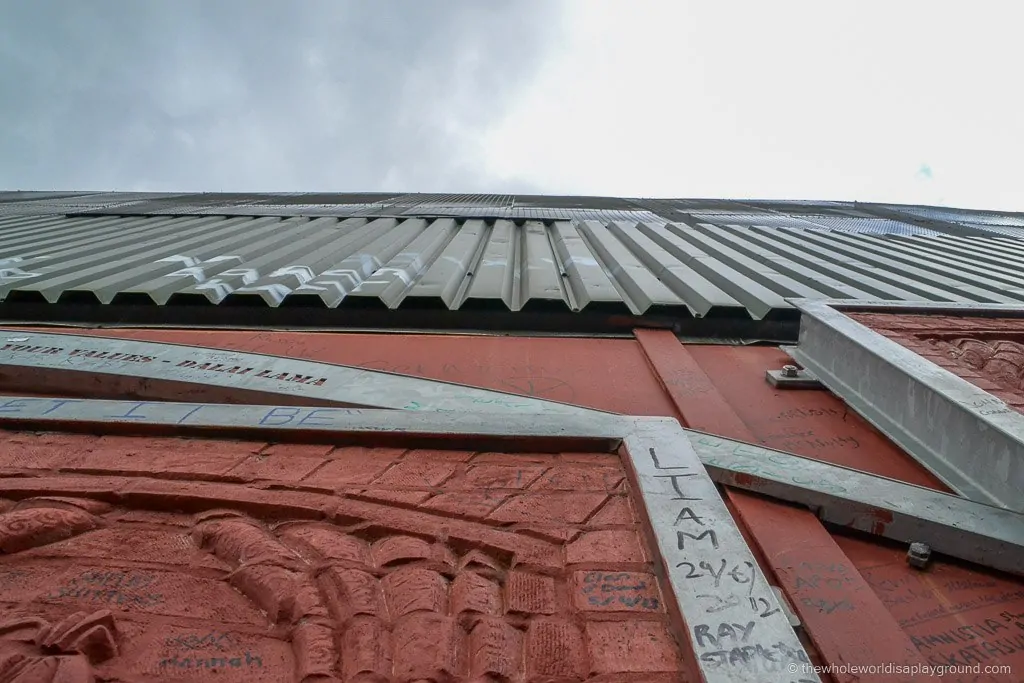
Some of the walls prevent access between the neighbouring areas completely while others have restricted day time opening hours.
Crumlin Road
Our journey took us past the old Crumlin Road Prison and the Courthouse, two stunning listed buildings with huge historical significance. The prison and courthouse are connected by an underground tunnel and well known past prisoners include Ian Paisley, Bobby Sands and Martin McGuiness. The prison had an execution chamber within its walls where the last hanging took place in 1961.
The Falls Road
The Falls Road in West Belfast is synonymous with the Republican and predominately Catholic community and gives another glimpse into the volatile past of Northern Ireland. The murals illustrate the opposing side of the Troubles from the Shankill Road we visited earlier but were equally as thought provoking as their counterparts.
Bobby Sands, who died on hunger strike while in prison:
A mural dedicated to some of the most high profile deaths during the Troubles:
A reference to the blanket protest which occurred when political prisoners were given the same status as all prisoners and were expected to wear a prison uniform:
International Wall
The International Wall contains murals with an international theme and focuses on world issues and environmental matters among others.
One of the focus points of the International Wall is a copy of Picasso’s Guernica created by community artists Danny Devenny and Mark Ervine who came together from very opposing sides of the Troubles to paint their vision of a better future.
The copy of Picasso’s Guernica:
Clonard Memorial Garden
The final stop on the black cab tour was the Clonard Martyrs Memorial Garden, which is located on Bombay Street. The street was burned down in the 1969 Northern Ireland riots and the phoenix on the gate represents the street rising from the ashes when it was rebuilt. The park is situated between the beautiful Clonard Monastery and a row of houses protected by metal sheets to prevent objects being fired over the peace wall.
Clonard Monastery:
The surrounding houses:
Overall
Belfast is an incredible city and our Black Cab tour driver gave us a fascinating and balanced insight into the history of the Troubles and the city itself. The various stops at the flash points of the Troubles allowed us to understand and witness the current and past situation of the communities while the peace walls shocked us equally as much as the Separation Wall in Bethlehem.
With our heads filled with the past, present and future of an amazing city we couldn’t have asked for a better day in Belfast.
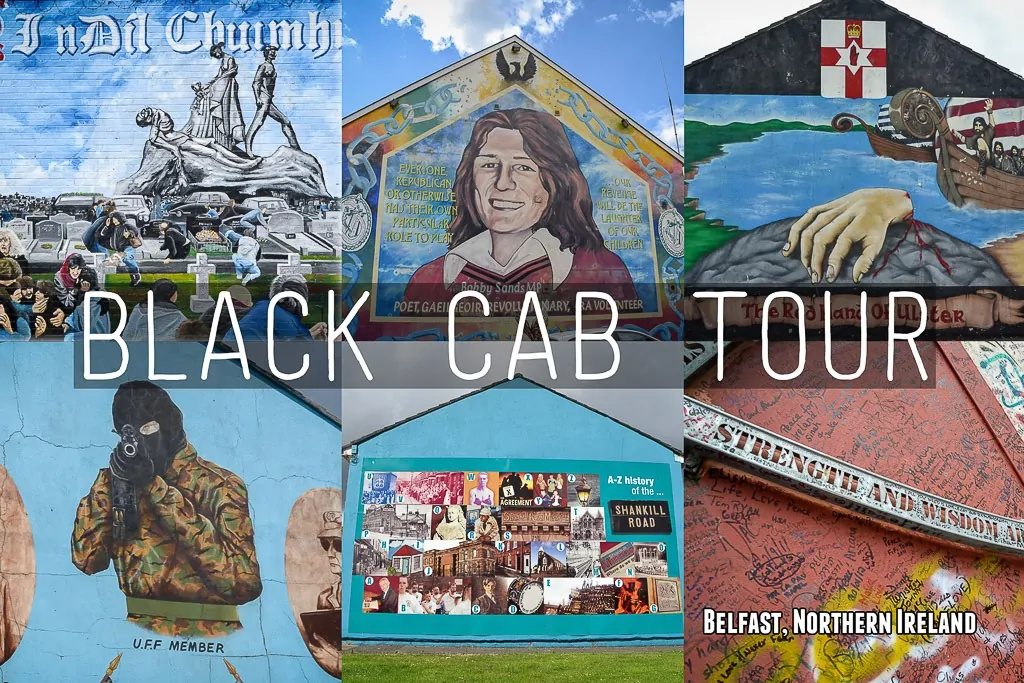
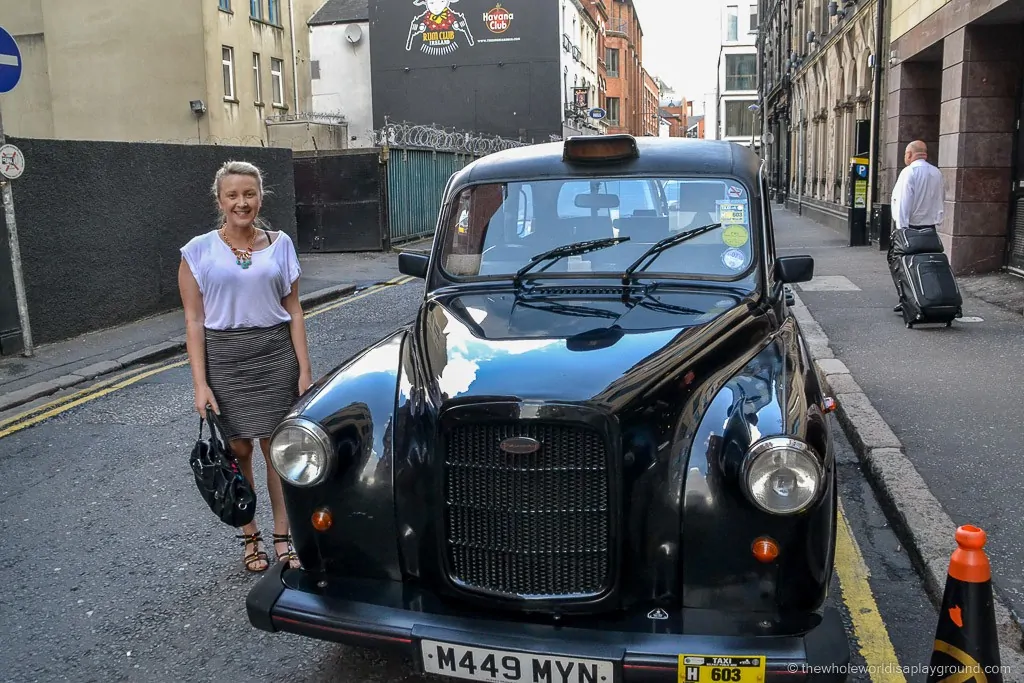
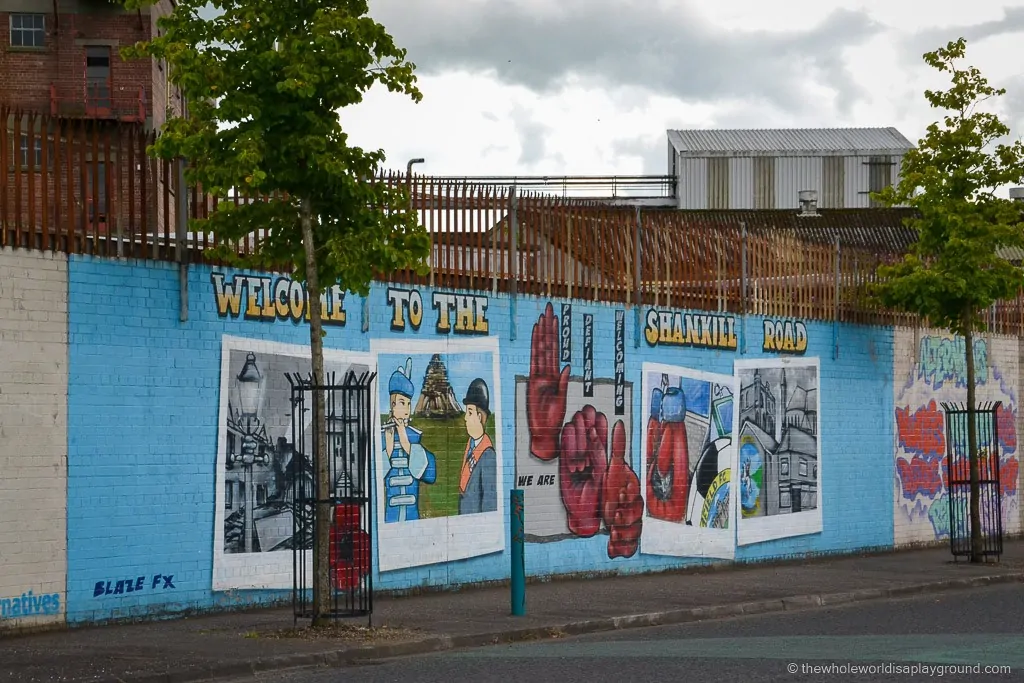
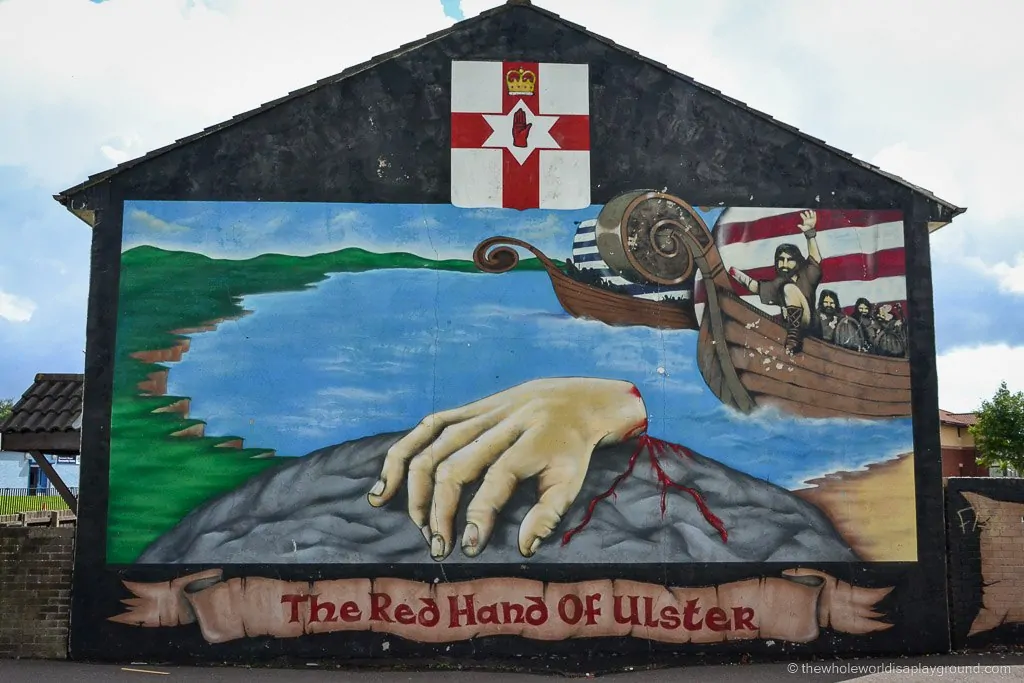
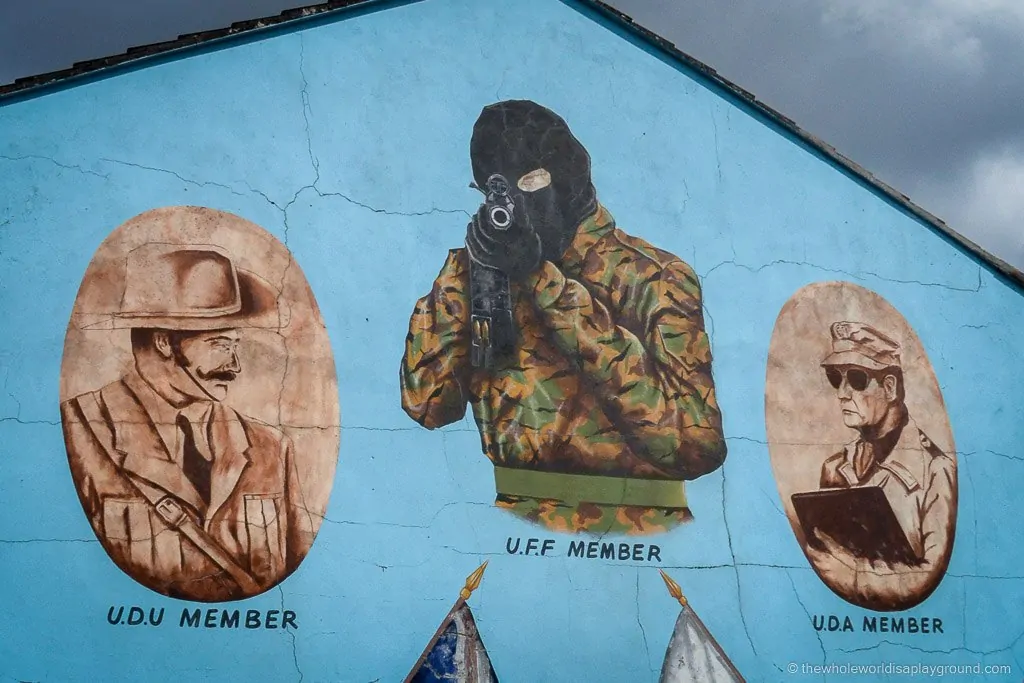
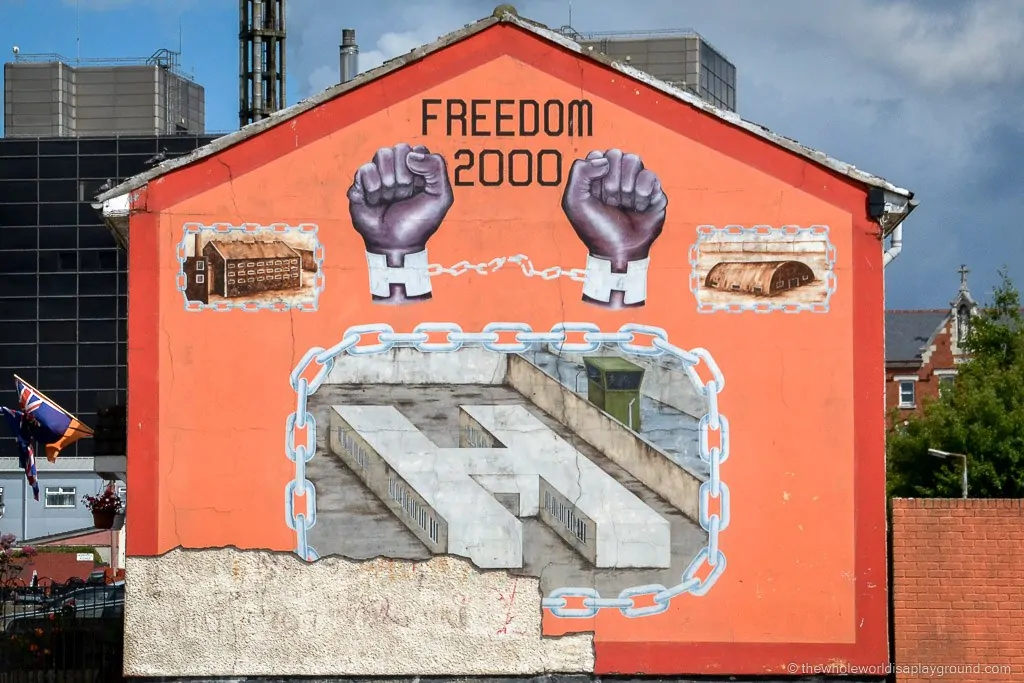
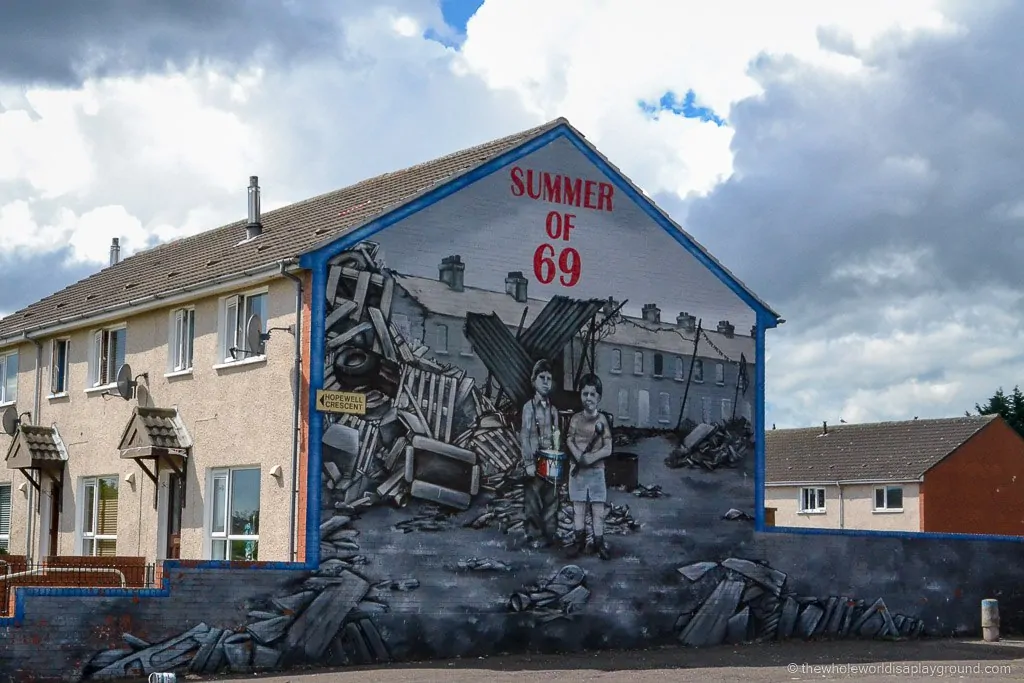
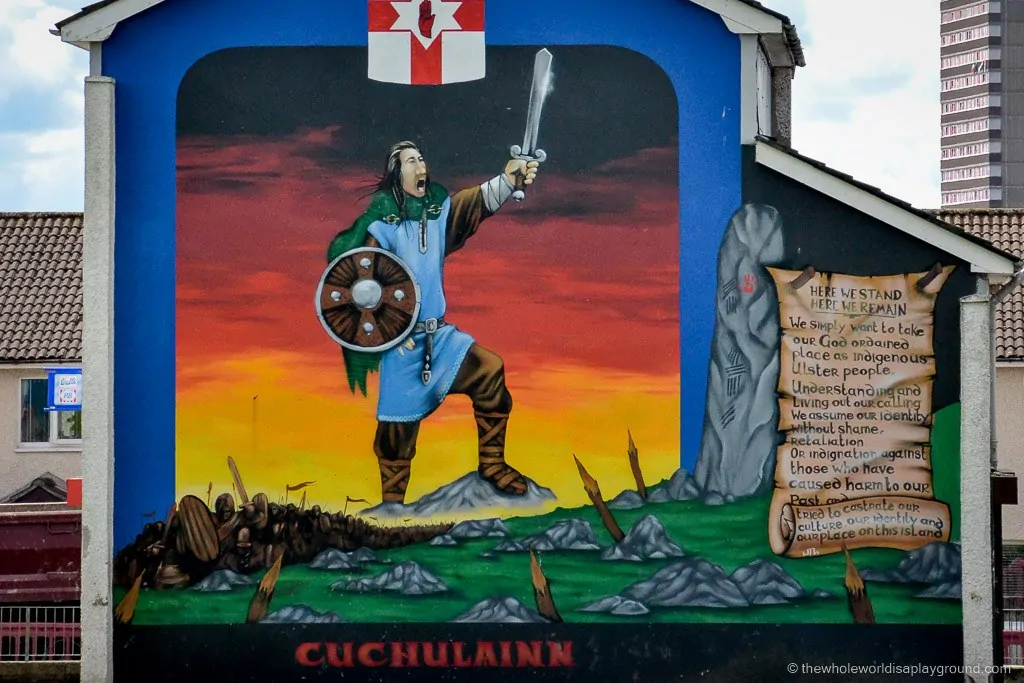
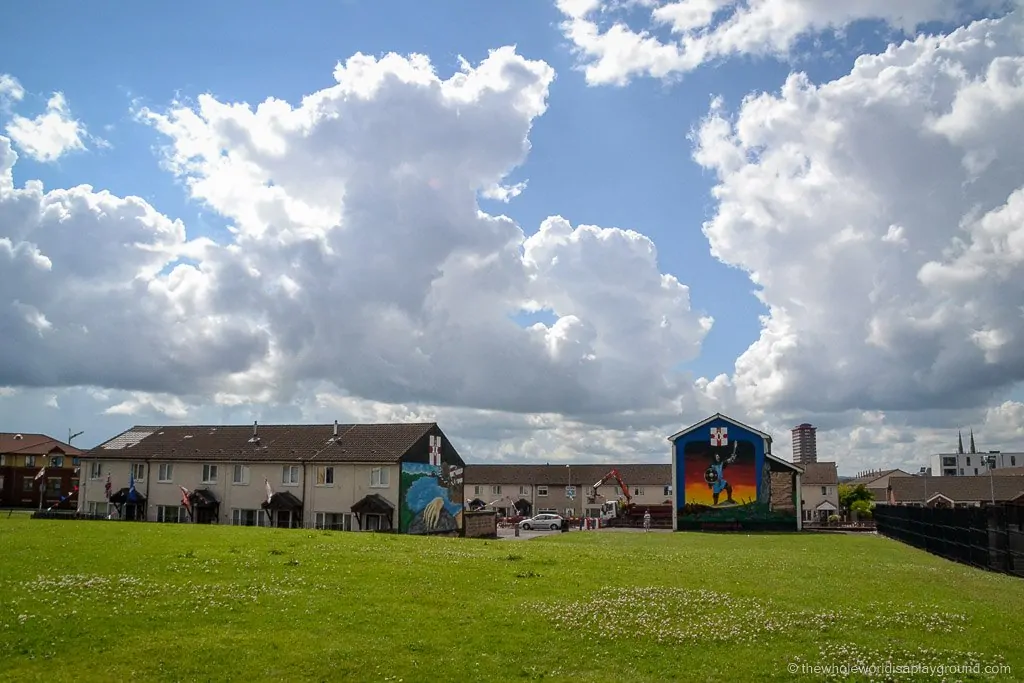
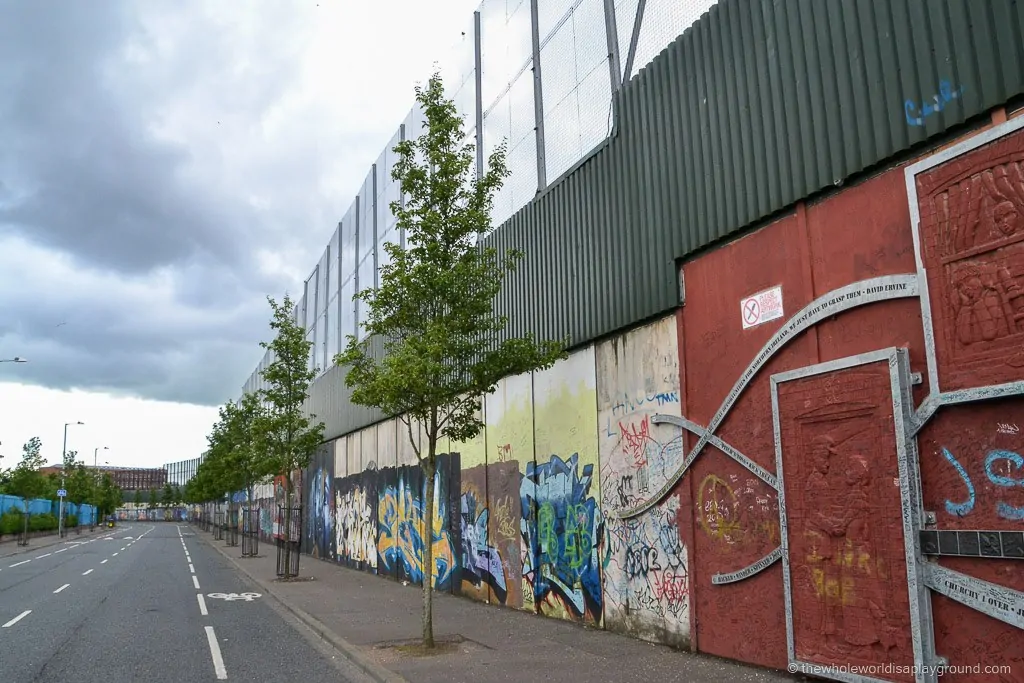
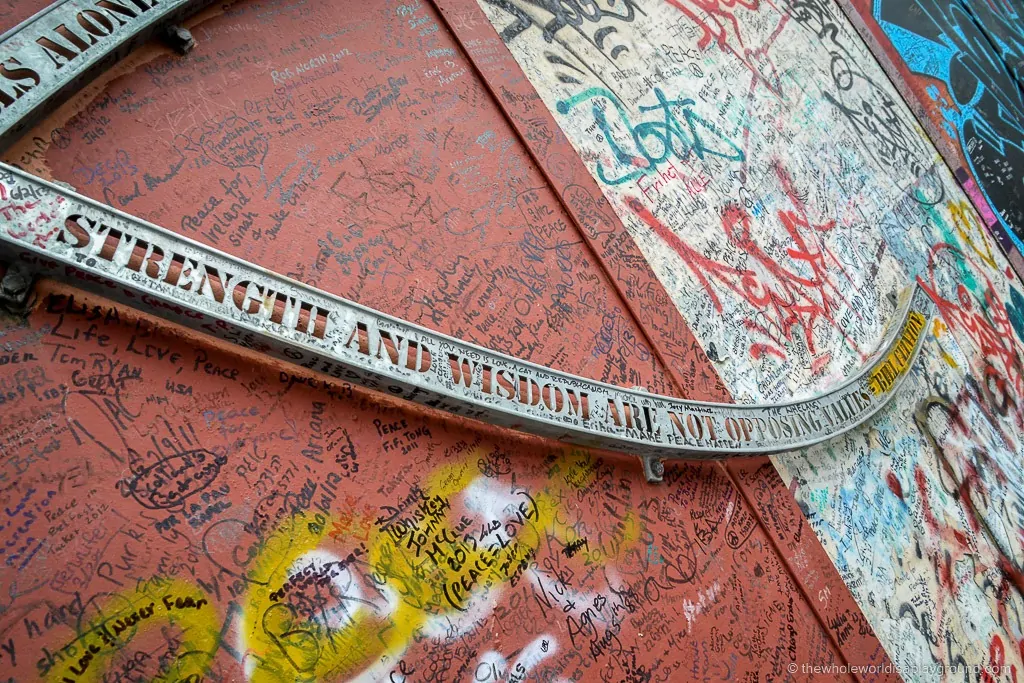
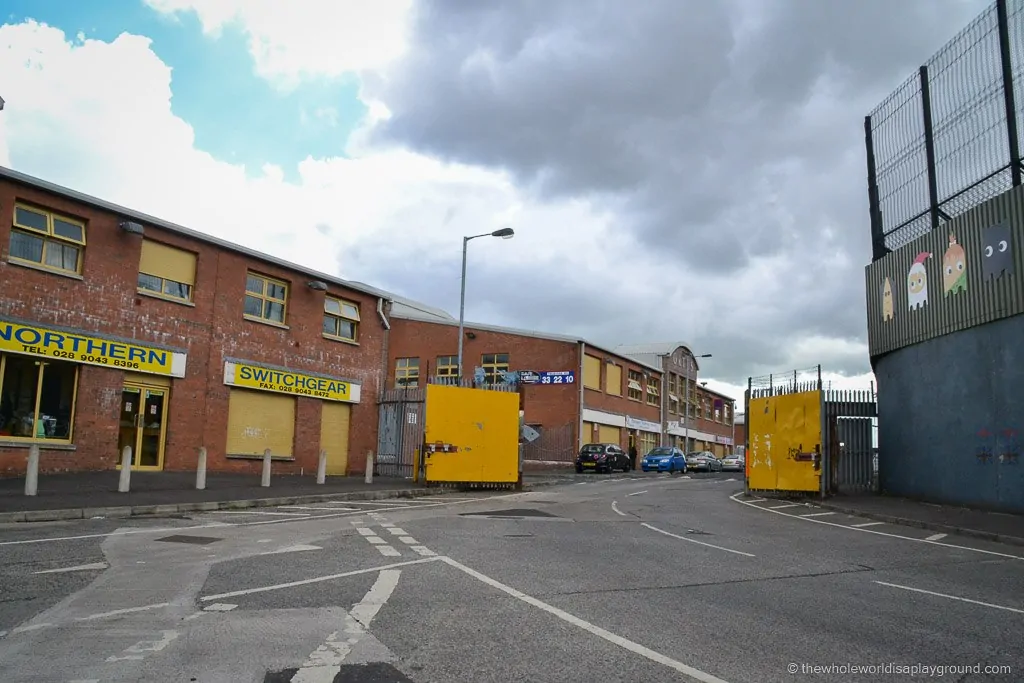
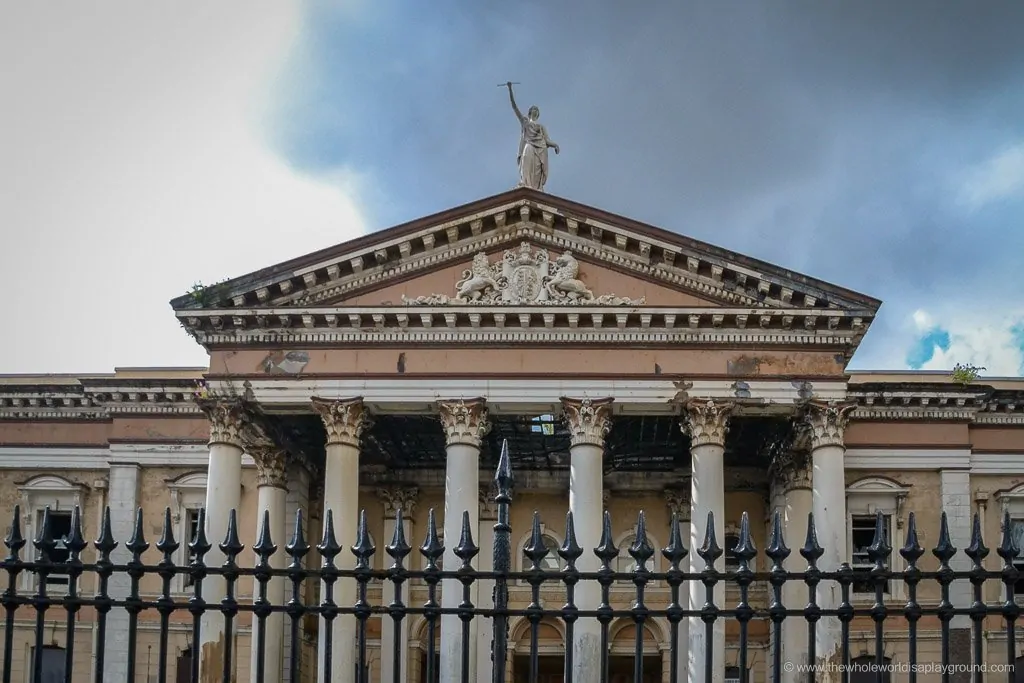
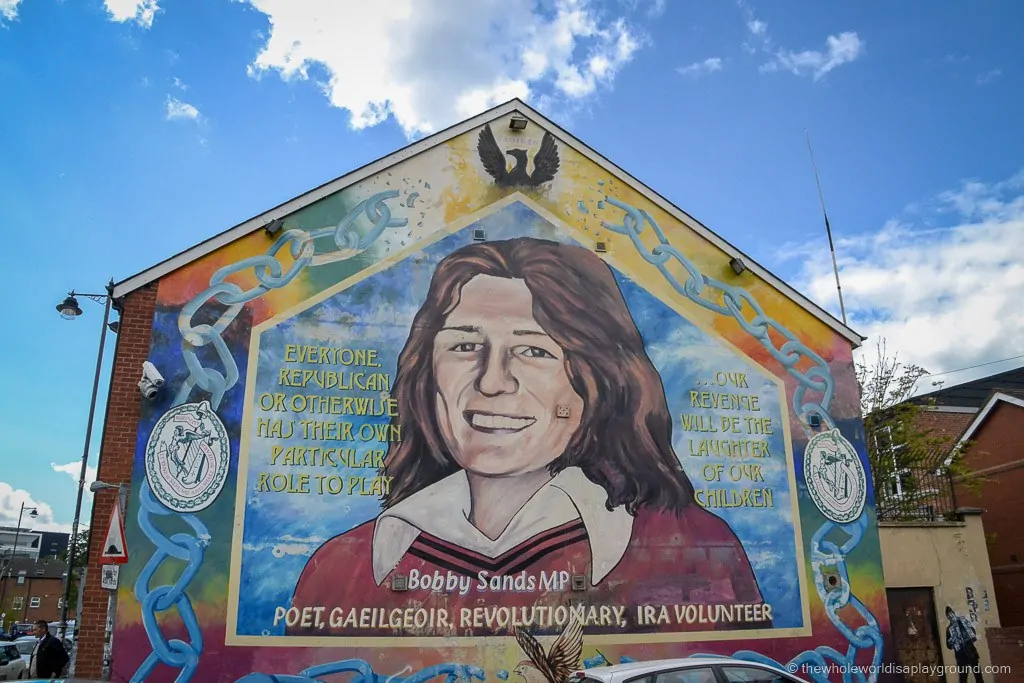
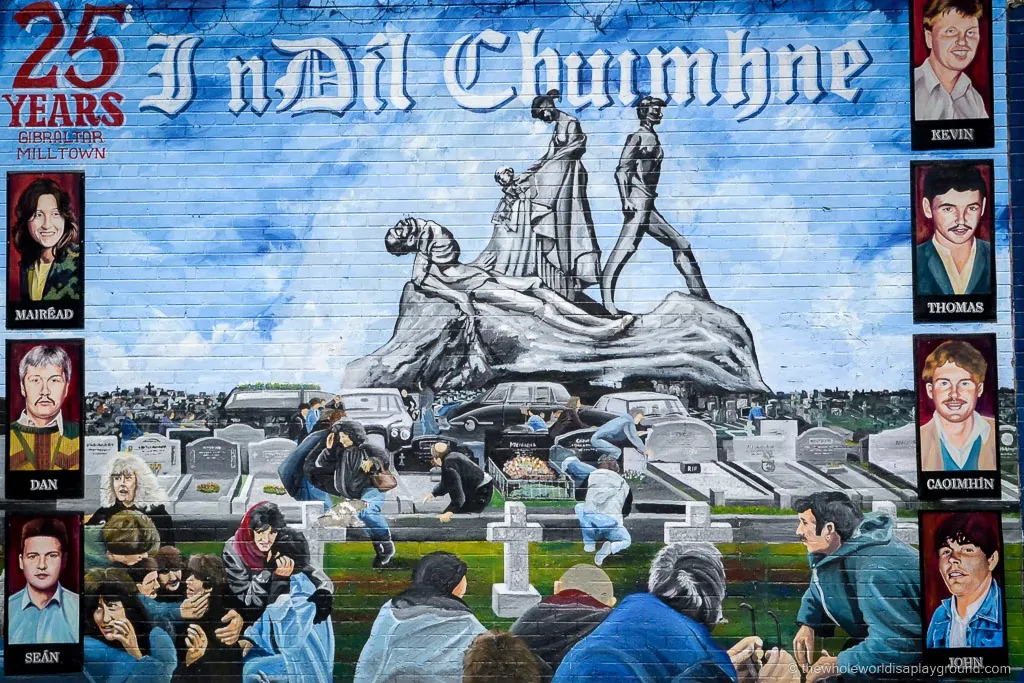
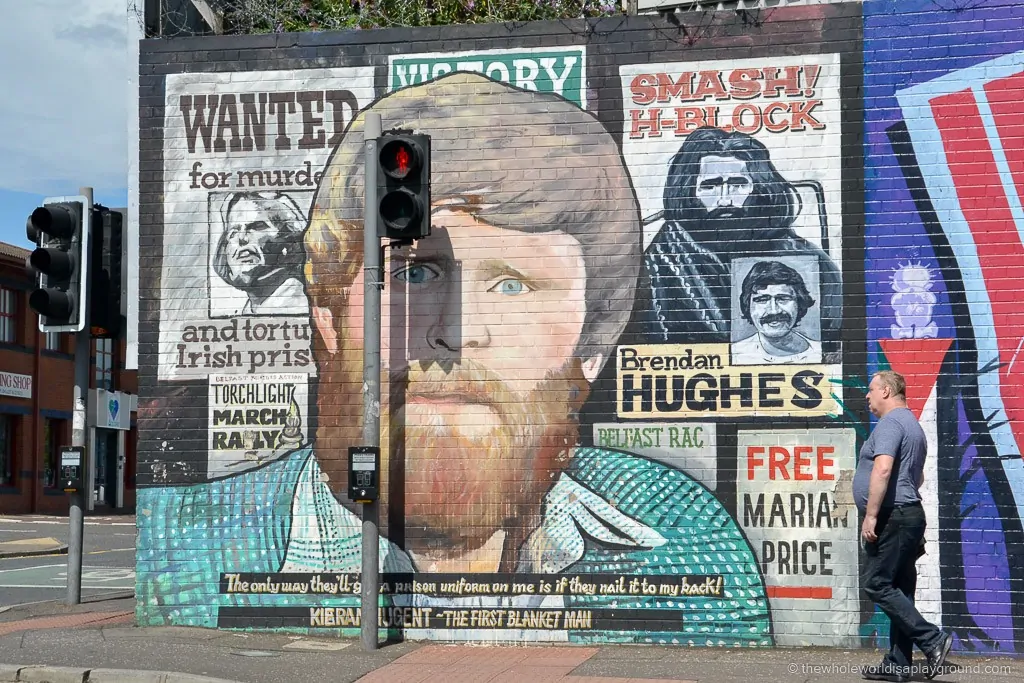
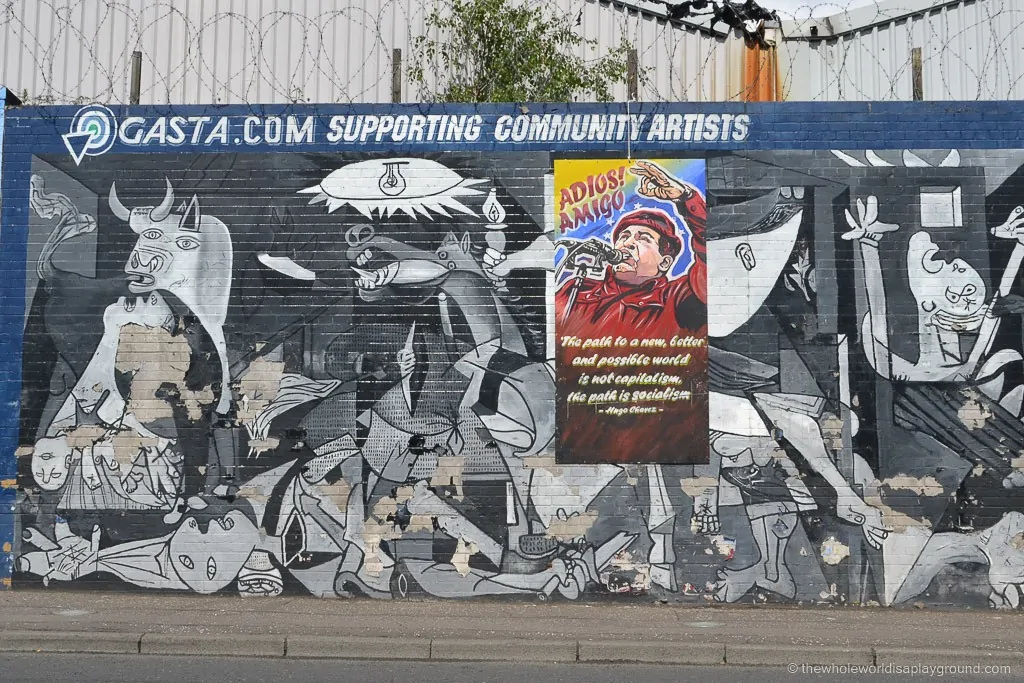
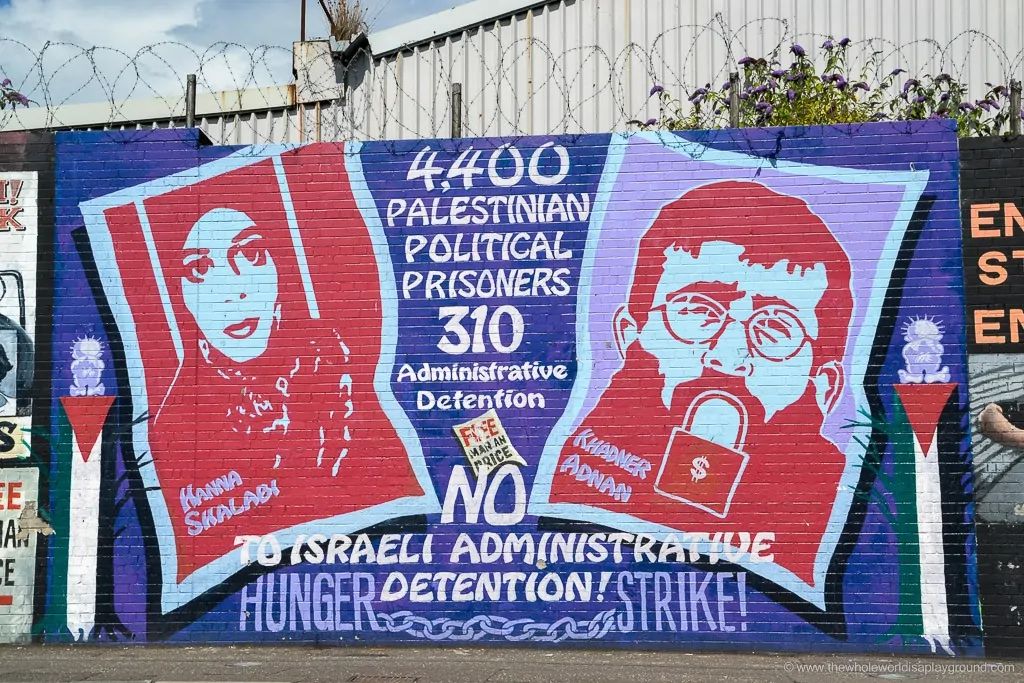
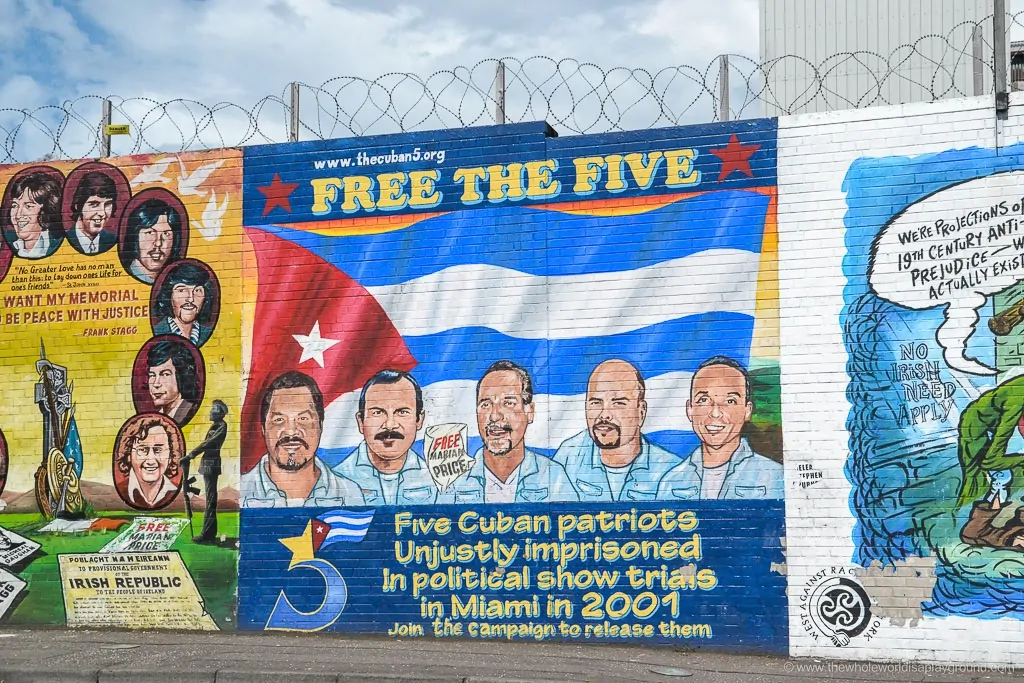
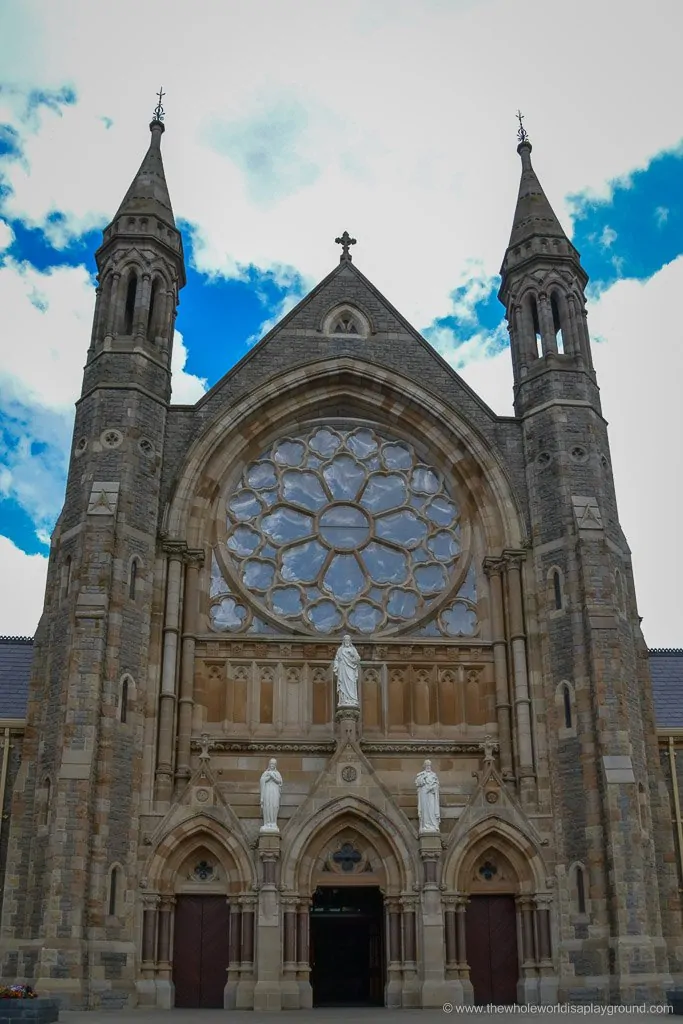
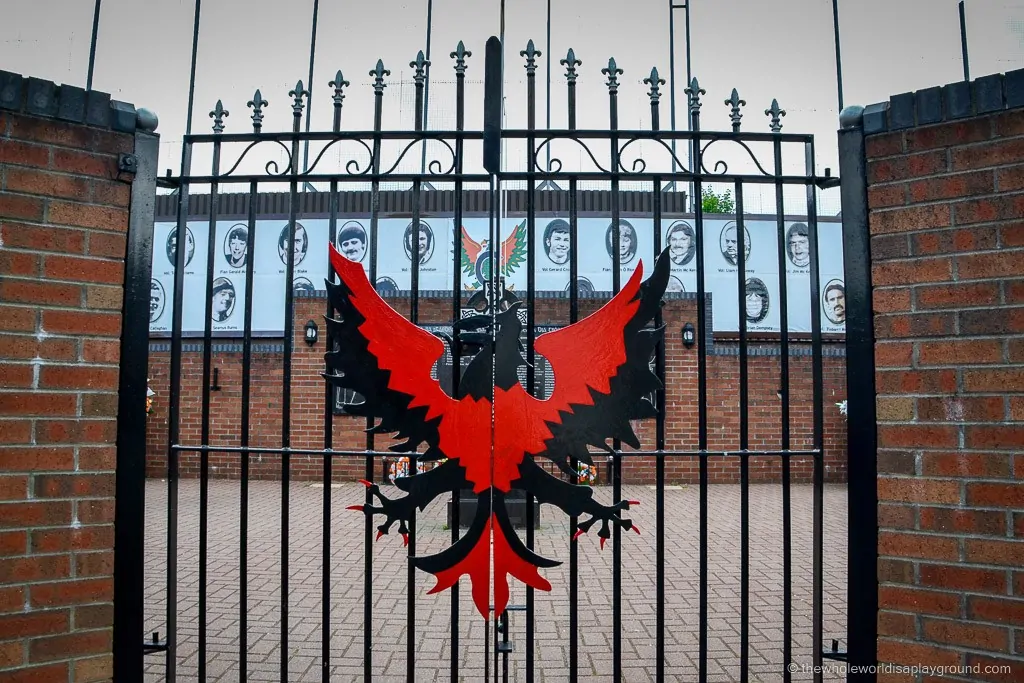
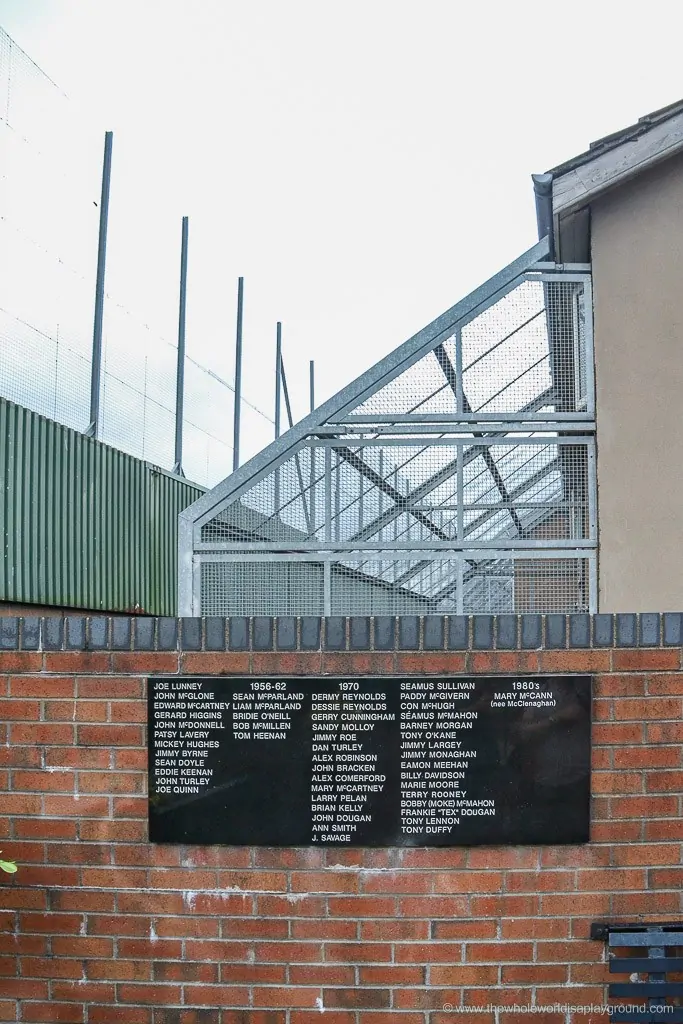
I REALLY ENJOYED THIS TOUR YOU HAVE GIVEN OF A DIVIDED BELFAST.
Thanks Cath!
I live in Belfast, next time you’re over, give me a shout! 🙂
Will do Els!
Didn’t even know you could do black cab tours?! Some great shots of the murals here and beautiful to read the quote from the Dali Lama on the Peace Wall. Thanks
Thanks Steph, glad you liked the post 🙂